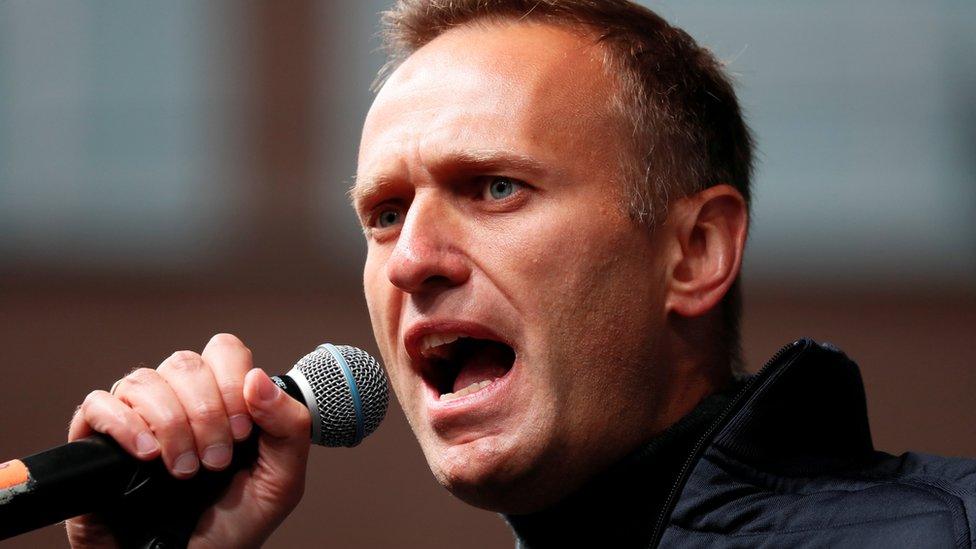Amesbury Novichok poisoning: Sajid Javid 'not jumping to conclusions'
- Published
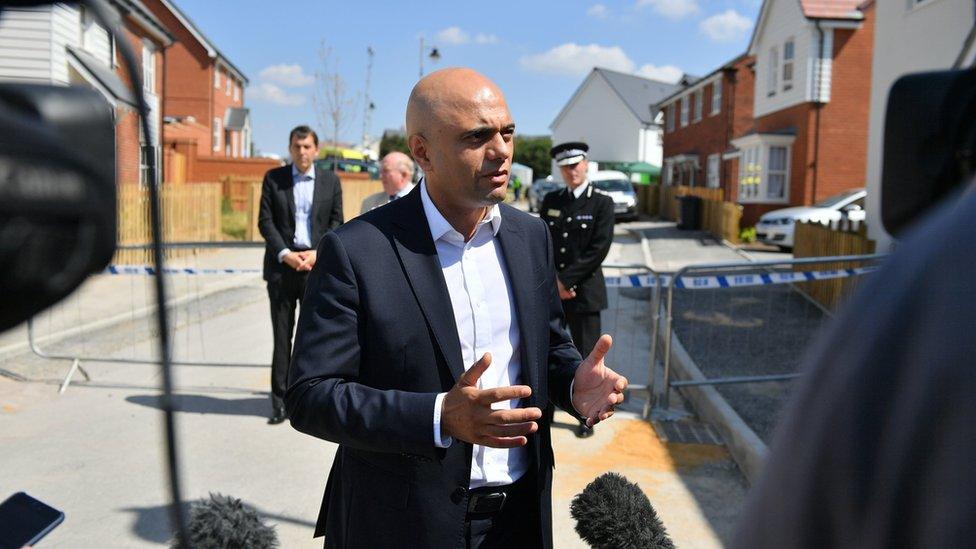
Home secretary Sajid Javid met people in Salisbury and Amesbury to reassure them
Sajid Javid has said there are "no current plans" to impose fresh sanctions on Russia over the latest nerve agent poisonings in Wiltshire.
He repeated the government's assessment that Russia was the source of the poison but said he would not "jump to conclusions".
The home secretary was speaking during a visit to Amesbury, where two people remain critically ill in hospital.
Their symptoms were the same as those of Sergei and Yulia Skripal.
Mr Skripal, a Russian former spy, and his daughter were poisoned with Novichok in March.
Are you in the area? Do you have any information to share? Email haveyoursay@bbc.co.uk, external.
It was Mr Javid's first visit as home secretary to Salisbury and Amesbury, where Dawn Sturgess, 44, and her partner Charlie Rowley, 45, fell ill a week ago.
Police believe the couple handled an item contaminated with the nerve agent Novichok.
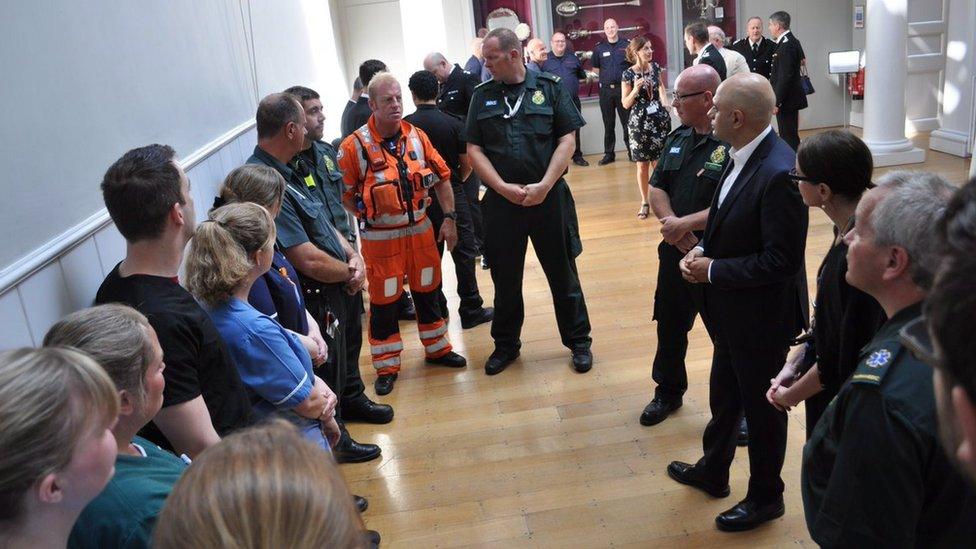
Mr Javid praised emergency personnel for their work
"What our expert scientists have determined is that the nerve agent in this incident is the same exact nerve agent that was used back in March," he said.
"We know back in March that was the Russians. We know it was a barbaric, inhuman act by the Russian state."
Russia has denied any involvement.
'Risk remains low'
Mr Javid added: "Again for this particular incident we need to learn more and let the police do their work."
He met local people and business owners during his visit, and also praised emergency services for their response to the poisonings.
The home secretary said "the risk to the public remains low", adding that he was "very confident" police would uncover the source of the poison.
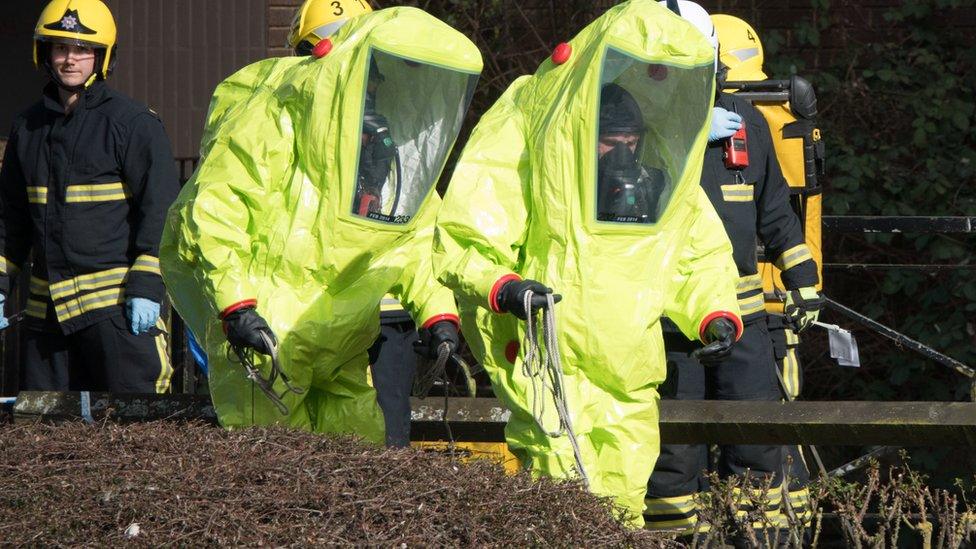
The nerve agent Novichok is highly toxic
He said the area remains "open for business" and urged people to show their support and visit.
The police's "working hypothesis" is that the Amesbury poisoning and the Salisbury incident are linked, but Mr Javid called for the police to be given "time and space" to work.
"What I am very confident of, with the amount of police work that's going on here - the support both from Wiltshire Police but also more than 100 officers from the counter-terrorism network involved as well - that they will eventually, one way or the other, get to the bottom of this," he said.
He rejected suggestions that the government had been too quick to insist Salisbury was safe after the attack on the Skripals in March.
It is not believed that the couple in the latest poisoning incident had visited the sites connected to the Skripals in Salisbury, he added.
- Published7 July 2018

- Published5 July 2018
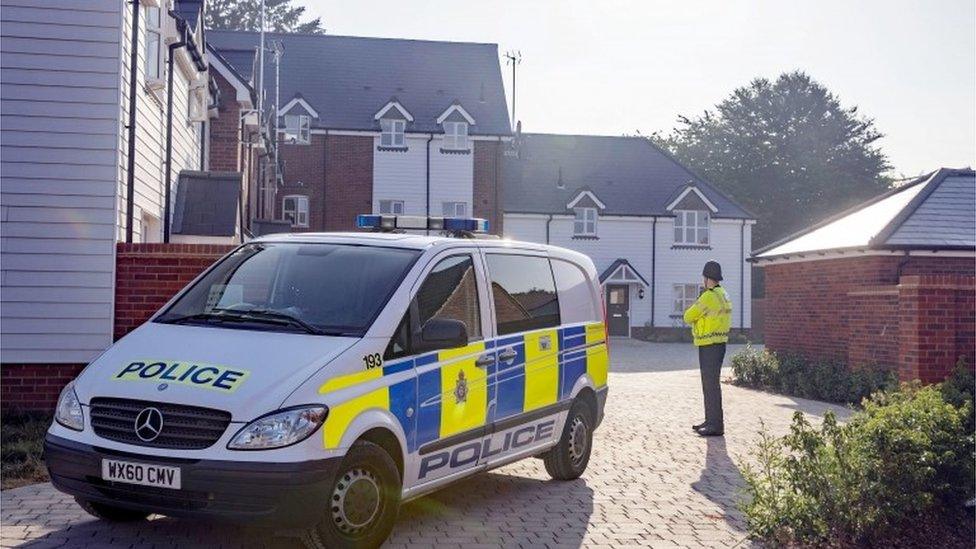
- Published2 September 2020
